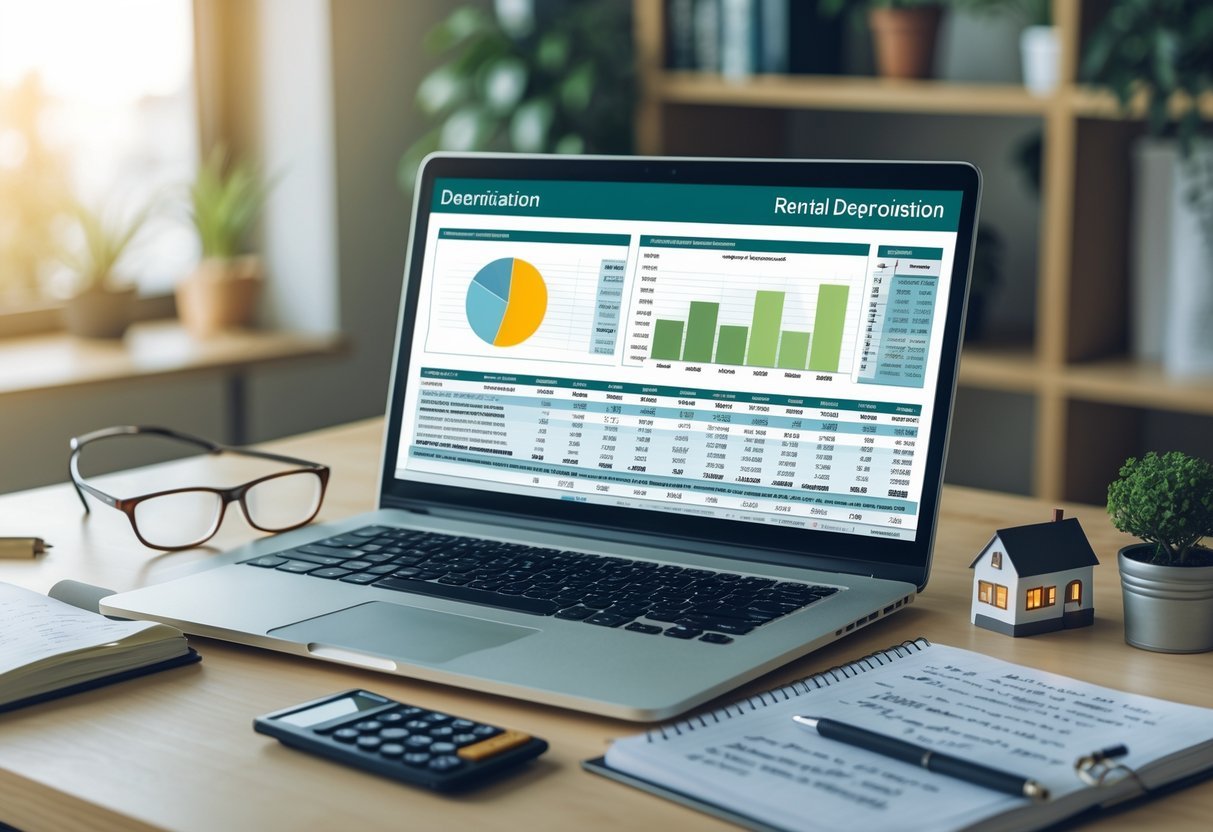Selling investment property often triggers significant capital gains taxes, but a powerful strategy exists to defer these taxes legally. A 1031 exchange allows investors to defer capital gains tax when selling one property by reinvesting the proceeds into another qualifying property. You can potentially defer 100% of your capital gains taxes by following specific IRS rules for executing a like-kind exchange.
The rules for completing a successful 1031 exchange are detailed and time-sensitive. Real estate investors must exchange one investment property for another like-kind property within strict timelines while working with qualified intermediaries to ensure compliance. Following these requirements precisely helps you maintain tax-deferred status and maximize your investment potential.
Key Takeaways
- You must identify replacement properties within 45 days and complete the exchange within 180 days
- The replacement property value must equal or exceed the value of the relinquished property
- Working with qualified intermediaries is essential for proper documentation and tax compliance
What Is a 1031 Exchange?
A 1031 exchange allows investors to defer capital gains tax when selling an investment property by reinvesting the proceeds into another qualifying property. This powerful tax strategy helps real estate investors preserve their wealth and expand their portfolios.
Section 1031 of the Internal Revenue Code
Section 1031 originated as part of the U.S. tax code to provide relief for business and investment property owners. The provision enables you to postpone paying taxes on gains when you reinvest in similar properties.
The Internal Revenue Code requires specific conditions for qualifying exchanges:
- Properties must be held for investment or business use
- Exchanges must involve “like-kind” real estate
- You must identify replacement property within 45 days
- The exchange must be completed within 180 days
Like-Kind Exchanges Explained
Like-kind refers to the nature or character of the property, not its grade or quality. Most real estate trades qualify as like-kind.
Eligible property types include:
- Apartment buildings
- Office buildings
- Retail spaces
- Industrial facilities
- Raw land
- Rental houses
Personal residences and property held primarily for sale do not qualify.
Purpose and Benefits of 1031 Exchanges
The primary advantage is tax deferral – you can postpone paying capital gains taxes by reinvesting in new properties. This preserves your investment capital for growth.
Key benefits include:
- Wealth preservation: Keep more money working in investments
- Portfolio growth: Trade up to larger or multiple properties
- Investment flexibility: Relocate or diversify holdings
- Estate planning: Pass appreciated property to heirs
You can perform unlimited 1031 exchanges over time, potentially deferring taxes indefinitely while building wealth through real estate investment.
Key 1031 Exchange Rules
The 1031 exchange tax deferral requires strict adherence to specific IRS regulations. These rules determine which properties qualify, their required values, and who can conduct the exchange.
Like-Kind Property Requirements
Investment properties must be similar in nature to qualify as like-kind exchanges. Real estate can only be exchanged for real estate.
Qualifying properties include:
- Rental properties
- Office buildings
- Retail spaces
- Agricultural land
- Raw land
Personal residences and property held primarily for resale do not qualify for 1031 exchanges.
You can exchange different types of real estate – for example, trading an apartment building for vacant land is permitted.
Equal or Greater Value Rule
Your replacement property must be of equal or greater value than the property you’re selling to receive full tax deferral benefits.
The purchase price and mortgage amount of the new property must meet or exceed those of the sold property.
If you acquire a lower-value property, you’ll need to pay capital gains tax on the difference, known as “boot.”
You must reinvest all equity from the sale into the replacement property to avoid tax liability.
Same Taxpayer Rule
The tax entity that sells the original property must be identical to the one acquiring the replacement property.
Names on title and tax returns must match exactly between properties. This includes:
- Individual names
- LLC names
- Partnership entities
- Trust designations
Special care is needed when dealing with married couples, partnerships, or LLC ownership structures to maintain proper entity consistency throughout the exchange.
Eligible and Ineligible Properties
Property eligibility in a 1031 exchange depends on the property’s purpose and use. The IRS has specific requirements for what qualifies as “like-kind” property and maintains strict rules about property types that can be exchanged.
Investment and Business Properties
Real property held for investment or business purposes qualifies for 1031 exchange treatment. This includes apartment buildings, commercial properties, and rental homes.
You can exchange raw land for improved property, such as swapping vacant lots for office buildings. Shopping centers, industrial facilities, and agricultural land all qualify when used for business or investment.
Leasehold interests with 30+ years remaining can be exchanged. Your rental properties, whether single-family homes or multi-unit complexes, are eligible when held as investments.
Exclusions and Restrictions
Your primary residence does not qualify for a 1031 exchange. Properties held primarily for sale, such as fix-and-flip projects or development properties, are ineligible.
You cannot exchange property outside the United States for U.S. property. The rules require both properties to be within the same country.
Investment properties must be held for a sufficient period to demonstrate investment intent. Immediate resales or properties purchased just before the exchange may be disqualified.
Personal Property and Other Asset Types
As of 2018, personal property no longer qualifies for 1031 exchanges. This means you cannot exchange:
- Vehicles and equipment
- Artwork and collectibles
- Patents and intellectual property
- Stocks and securities
- Cryptocurrency
The current tax law restricts exchanges to real property assets only. Your business equipment, machinery, and other tangible personal property must use different tax strategies for disposal or replacement.
1031 Exchange Process and Timeline
The IRS requires specific steps and strict deadlines for completing a valid 1031 exchange process. Meeting these requirements is essential to defer capital gains taxes on your investment property transactions.
Steps for a Successful Exchange
You must first sell your relinquished property through a qualified intermediary who holds the proceeds in escrow. The intermediary acts as a safeguard to prevent direct receipt of funds.
Select between three exchange types:
- Delayed Exchange: Most common type where you sell first, then buy
- Simultaneous Exchange: Sale and purchase occur on the same day
- Reverse Exchange: Purchase replacement property before selling current property
Your qualified intermediary must document all transactions and maintain proper records for tax reporting purposes.
Important Deadlines and Time Frames
The 45-day identification period starts the day you sell your relinquished property. During this time, you must identify potential replacement properties in writing to your intermediary.
You have a total of 180 days to complete the exchange by purchasing one or more replacement properties. This period includes the 45-day identification window.
Key Timeline Requirements:
- Day 1: Sale of relinquished property
- Day 45: Deadline to identify replacement properties
- Day 180: Deadline to complete all purchases
Missing these deadlines will disqualify your exchange and trigger immediate tax liability.
Roles of Qualified Intermediaries and Professionals
A successful 1031 exchange requires specific professionals to handle complex documentation and ensure compliance with IRS regulations. These key roles help protect your interests and maintain the tax-deferred status of your transaction.
Qualified Intermediary Requirements
A Qualified Intermediary handles all transactional paperwork and holds proceeds from your relinquished property. This professional must not be related to you or act as your employee, attorney, or agent within two years of the exchange.
The QI must be certified through the Federation of Exchange Accommodators and maintain proper insurance coverage to protect your funds.
Your Qualified Intermediary will:
- Prepare exchange agreements and documentation
- Hold exchange funds in segregated accounts
- Coordinate with title companies
- Ensure compliance with 180-day completion requirements
Selecting Attorneys and Agents
Your real estate agent should have specific experience with 1031 exchanges to identify suitable replacement properties within required timeframes.
Choose a tax attorney who specializes in 1031 exchanges to:
- Review all contracts and agreements
- Verify compliance with IRS regulations
- Structure complex exchanges
- Provide legal guidance on property qualification
Working with experienced professionals reduces your risk of exchange failure. Interview multiple candidates and verify their credentials, insurance coverage, and track record of successful exchanges.
Financial Considerations and Tax Implications
1031 exchanges enable real estate investors to preserve wealth through tax deferral while restructuring their investment portfolio. Key financial aspects include tax implications, handling additional funds, and understanding profit calculations.
Capital Gains Tax Deferral
The primary benefit of a 1031 exchange is the ability to defer capital gains taxes when selling investment property. You can postpone paying taxes on your gains by reinvesting the proceeds into a like-kind property.
Your tax deferral remains in effect until you sell the replacement property without performing another exchange. The tax-deferred status continues even if you pass away, as your heirs receive a stepped-up cost basis.
Current capital gains tax rates range from 0% to 20%, depending on your income bracket. By deferring these taxes, you maintain more capital for investment purposes.
Boot, Cash, and Mortgage Debt
Boot refers to any non-like-kind property received in the exchange, including cash or reduced mortgage debt. You must pay taxes on boot in the year you receive it.
The replacement property should have equal or greater net market value than the relinquished property. Your new mortgage must also be equal to or greater than the old one to avoid mortgage boot.
If you add cash to the exchange, this doesn’t create taxable boot. You can use additional funds to purchase a more expensive property while maintaining tax-deferred status.
Profit, Tax Basis, and Gain or Loss
Your tax basis in the replacement property equals the basis of the relinquished property plus any additional investment. This maintains the deferred gain for future calculation.
The gain or loss calculation considers the property’s purchase price, improvements, and depreciation taken during ownership.
To maximize tax benefits, track all capital improvements made to both properties. These costs adjust your tax basis and affect future gain calculations.
Keep detailed records of your cost basis, as you’ll need this information when eventually selling the replacement property.
Compliance, Reporting, and Legal Considerations

Proper documentation and timely reporting are essential elements of a successful 1031 exchange. Tax laws require specific forms and deadlines while offering various structural options to complete these transactions.
IRS Form 8824 and Reporting Requirements
You must file IRS Form 8824 with your tax return in the year you complete the exchange. This form documents crucial details about your exchanged properties and the parties involved.
The form requires information about dates, property descriptions, and financial values. You’ll need to report the fair market value of both relinquished and replacement properties.
Make sure to include any cash received or liabilities assumed during the exchange. Incorrect reporting can trigger IRS scrutiny and potential penalties.
Recent Legislative Updates and Transition Rules
Current 1031 exchange rules mandate that properties must be of equal or greater value to qualify for full tax deferral.
Recent changes have limited exchanges to real property only. Personal property exchanges no longer qualify under Code Section 1031.
Pay attention to transition rules when regulations change. These rules often provide grace periods for transactions already in progress.
DSTs and Alternative Structures
Delaware Statutory Trusts (DSTs) offer a solution for investors seeking passive ownership in larger properties. These structures allow you to own fractional interests in institutional-grade real estate.
Like-kind property requirements apply to DST investments just as they do to direct property ownership. Your DST interest must be held for investment purposes.
DSTs can help you meet identification deadlines and property value requirements when suitable replacement properties are hard to find.
Frequently Asked Questions
1031 exchanges involve strict timelines, property requirements, and tax implications that real estate investors must carefully navigate. Tax-deferred exchanges only apply to qualified investment properties held for productive business use or investment purposes.
What is the deadline for identifying potential replacement properties in a 1031 exchange?
You must identify potential replacement properties within 45 days of selling your relinquished property. This identification must be made in writing to your qualified intermediary.
You can identify up to three properties regardless of their value, or you can identify more properties if their total value doesn’t exceed 200% of the relinquished property’s value.
Can a primary residence qualify for a 1031 exchange, and what are the specific conditions?
Your primary residence does not qualify for a 1031 exchange since these exchanges are limited to investment and business properties.
You can convert your primary residence into an investment property by renting it out for a significant period before attempting a 1031 exchange. The IRS typically looks for a minimum rental period of 12-24 months.
What are the implications of the five-year rule in a 1031 exchange?
The five-year rule requires you to hold your replacement property for at least five years if you plan to convert it into a primary residence later.
If you sell the property before the five-year period ends, you may face capital gains taxes on the entire transaction.
How does the 1031 exchange process differ for real estate investments compared to other asset types?
Real estate exchanges offer more flexibility in property selection and generally have higher success rates than other asset types. Both tangible and intangible property can qualify for 1031 exchanges.
Real estate must be exchanged for like-kind real estate, while personal property must be exchanged for property of the same asset class or product type.
What are the consequences of not meeting the 1031 exchange timeline requirements?
Missing exchange deadlines results in immediate recognition of capital gains and tax liability on your transaction.
You cannot receive extensions or exceptions to these deadlines except in presidentially declared disaster areas.
How might changes in tax laws affect the rules for 1031 exchanges in the current year?
Current tax laws maintain the tax-deferral benefits for real estate investments in 2025, though proposed legislation may affect future exchanges.
You should consult with a qualified tax advisor to stay informed about potential changes to exchange rules and requirements.




